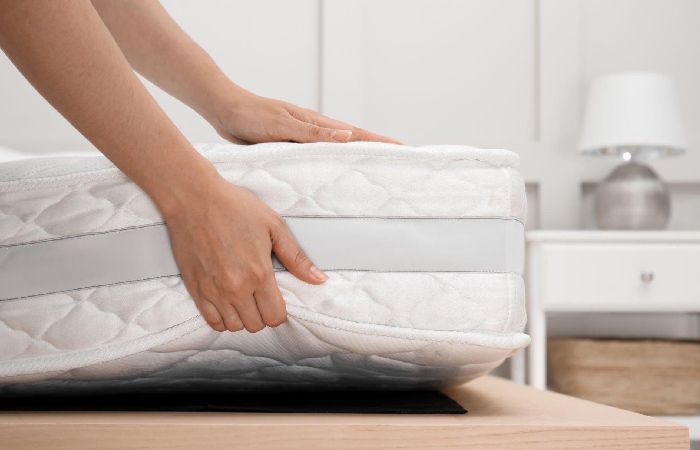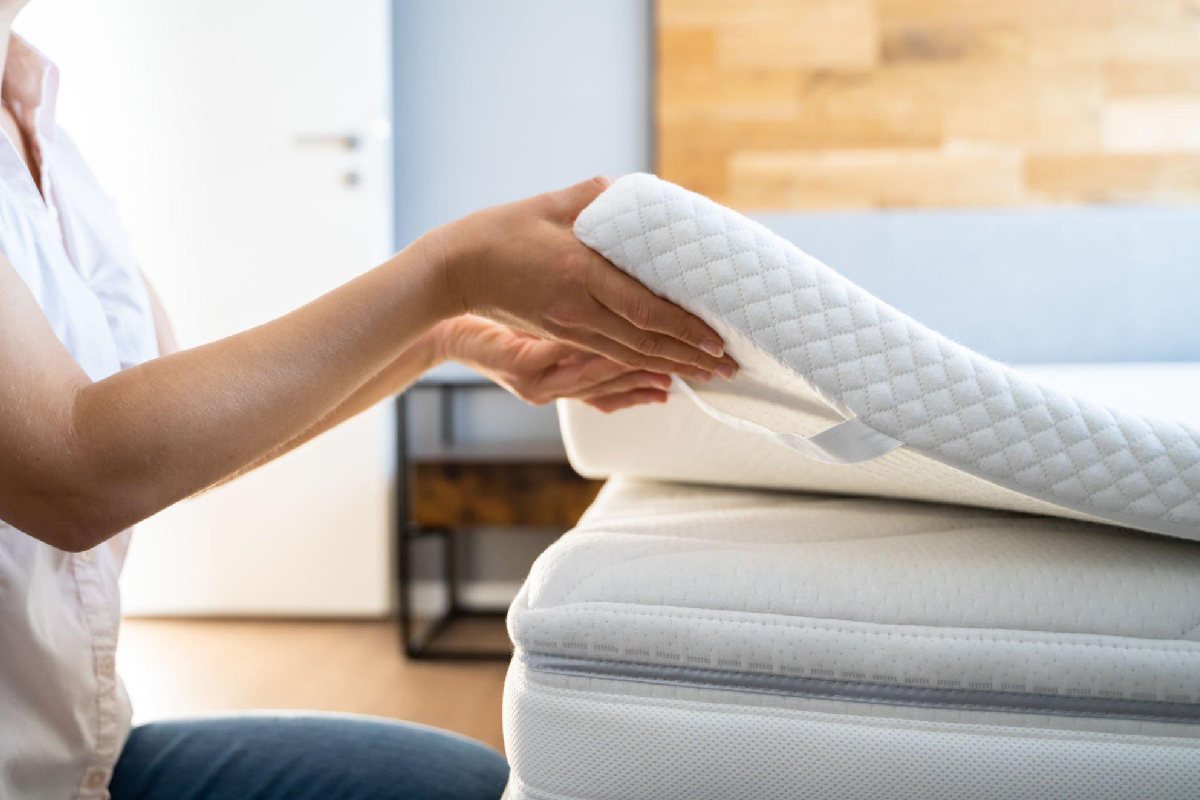Table of Contents
Introduction

Mattress – A good night’s sleep is essential for our overall health and well-being, and selecting the right mattress is crucial in ensuring that we wake up refreshed and rejuvenated each morning. With numerous options available in the market, discovering the perfect mattress can be intimidating. In this complete guide, we will explore the different types of mattresses, factors to consider when purchasing, and tips for mattress maintenance.
Whether you prefer a plush memory foam or a supportive innerspring mattress, this guide will help you make an informed decision and create a sleep haven that caters to your unique needs.
Understanding Different Mattress Types
Various types of mattresses are available, each offering distinct features and benefits. Let’s take a closer look at some popular options:
- Innerspring Mattresses: These traditional mattresses construct with interconnected metal coils that provide support and durability. They often have a comfort layer of foam or fiberfill on top.
- Memory Foam Mattresses: Memory foam mattresses outline the shape of your body, relieving pressure points and offering excellent motion isolation. They are ideal for individuals with back or joint pain.
- Latex Mattresses: Complete from natural or synthetic rubber, these mattresses provide responsive support and excellent durability. They are hypoallergenic and resistant to dust mites and mold.
- Hybrid Mattresses: Hybrid mattresses combine the support of innerspring coils with the pressure-relieving benefits of memory foam or latex. They offer a balanced feel and are suitable for many sleepers.
- Airbed Mattresses: Airbeds use air chambers to adjust the firmness level, allowing users to customize their sleep experience. They are beneficial for couples who have different preferences.
Factors to Consider When Choosing a Mattress
Selecting the right mattress involves considering several factors to ensure it aligns with your needs and preferences. Here are some crucial aspects to keep in mind:
- Firmness and Support: The firmness and support required varies from person to person. Side sleepers may select a softer mattress, while back and stomach sleepers often need a firmer surface for proper spinal alignment.
- Sleep Position: Your preferred sleep position should influence your mattresses choice. Side sleepers typically benefit from mattresses that relieve the hips and shoulders pressure, while back and stomach sleepers need adequate support.
- Motion Transference: If you sleep through a partner, motion isolation becomes crucial to minimize the disturbance caused by movement. Memory foam and hybrid mattresses usually excel in this aspect.
- Temperature Regulation: Some mattresses trap heat, leading to uncomfortable sleep. Look for beds with cooling properties, such as gel-infused foams or breathable materials, to promote airflow and regulate temperature.
- Allergies and Sensitivities: If you have allergies or sensitivities, consider hypoallergenic mattresses that resist dust mites, mold, and other allergens. Natural latex mattresses are a popular choice in this regard.
- Durability and Warranty: Investing in mattresses is a long-term commitment, so consider the durability and warranty offered by the manufacturer. A mattress that provides good support and maintains its integrity over time is worth considering.
Mattress Maintenance and Care

Proper maintenance ensures the longevity and performance of your mattress. Here are a few maintenance tips:
- Rotate the Mattress: Rotating your mattresses every three to six months promotes even wear and prevents sagging or indentations.
- Use a Mattress Protector: A mattress protects your mattresses from spills, stains, and dust mites, enhancing its lifespan.
- Keep it Clean: Regularly vacuum your mattress to remove dust and debris. If there are stains, follow the manufacturer’s instructions for cleaning or use a mild detergent.
- Avoid Sagging: Avoid sitting on the edges of your mattress or placing excessive weight on a specific area to prevent sagging.
- Follow Manufacturer Guidelines: Refer to the builder’s instructions for specific care recommendations for your mattress model.
Conclusion
A comfortable and supportive mattress is the cornerstone of a good night’s sleep. By understanding the different types of mattresses, considering essential factors, and maintaining your bed properly, you can create a sleep environment that optimizes rest and rejuvenation. Remember to take your time when selecting a mattress, try it out in-store or take advantage of trial periods offered by online retailers, and prioritize your individual needs for the best possible sleep experience. With the information in this guide, you can confidently make an informed decision and embark on a journey to restful nights and energized mornings.

